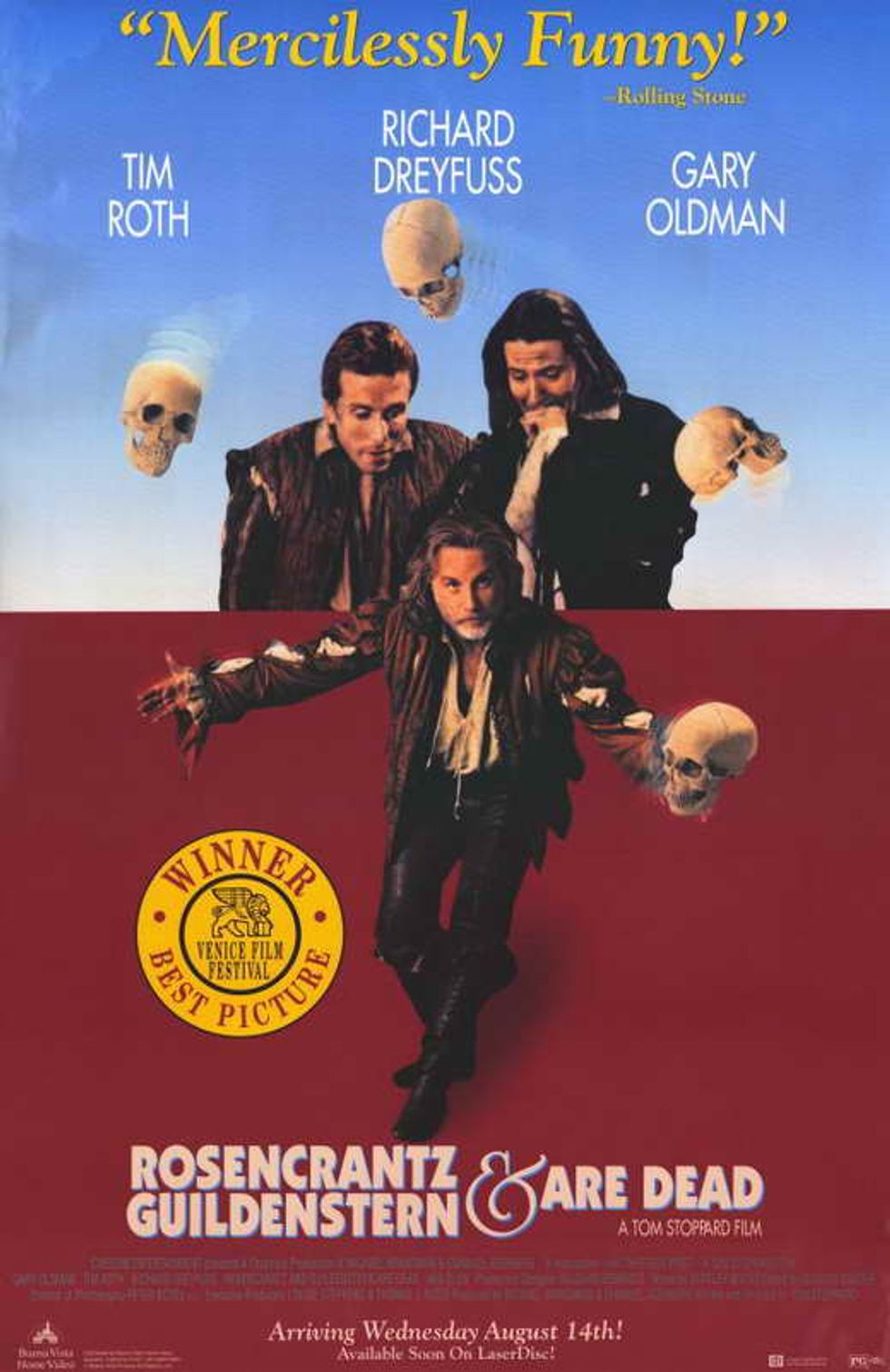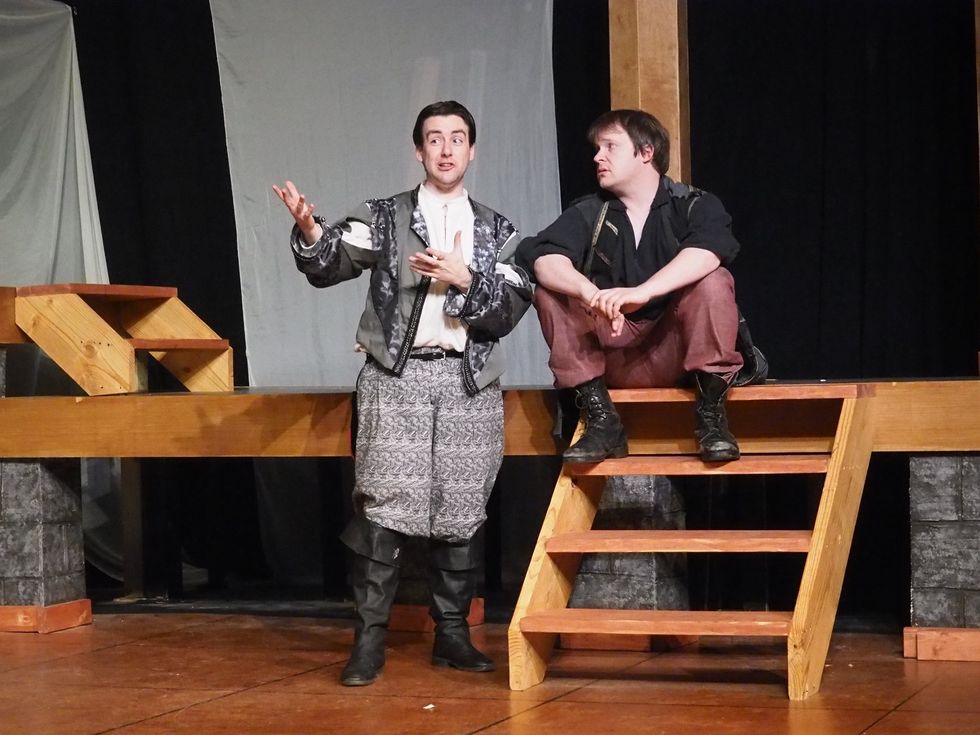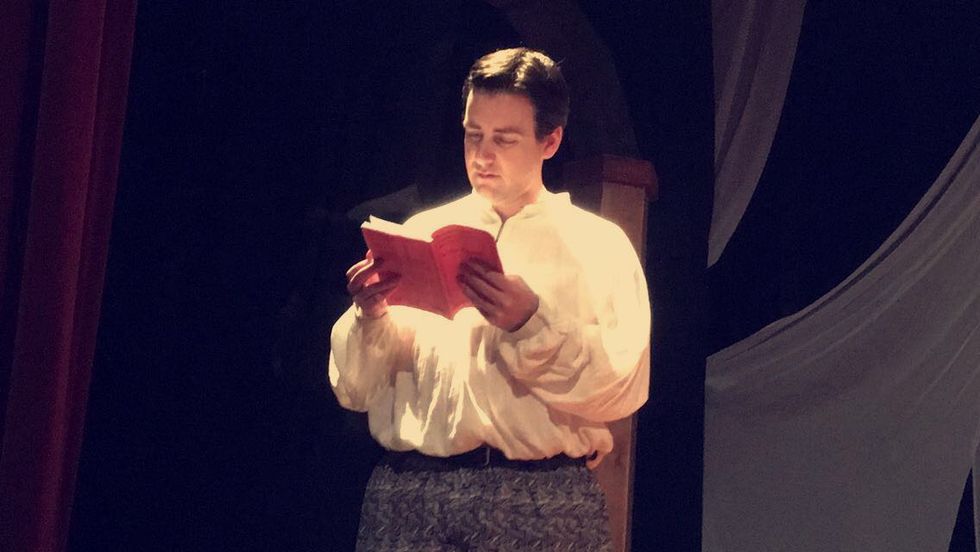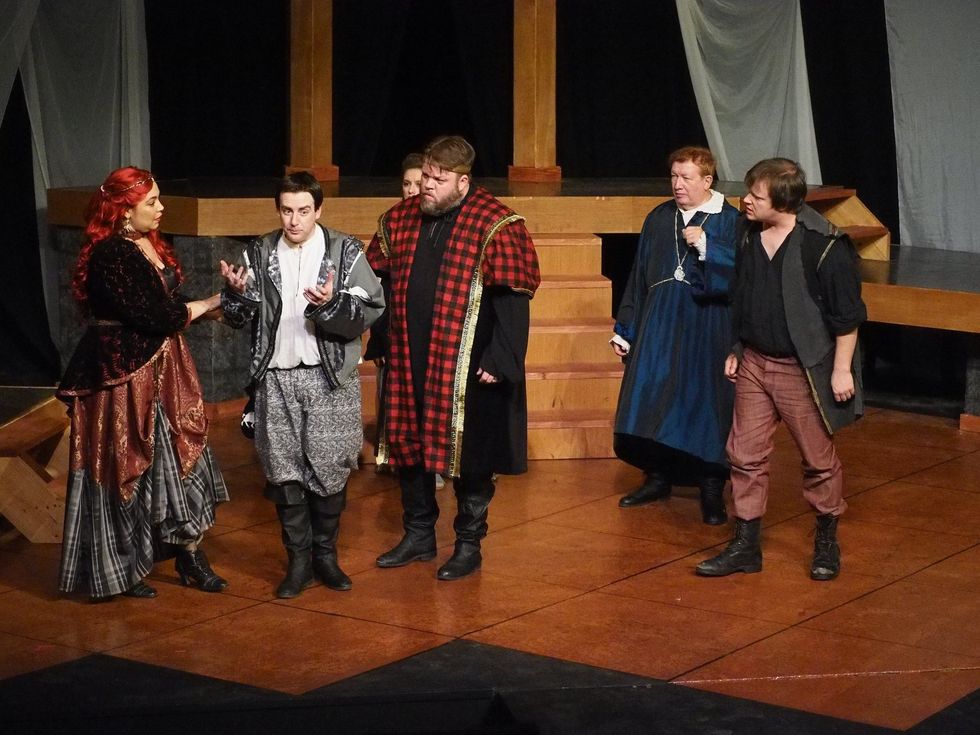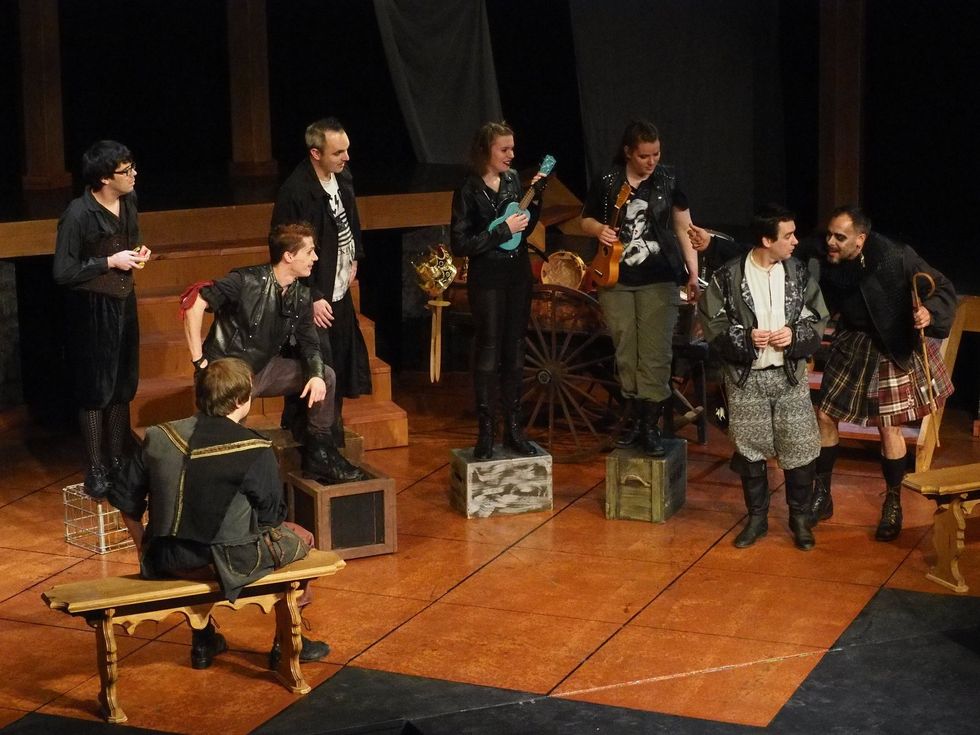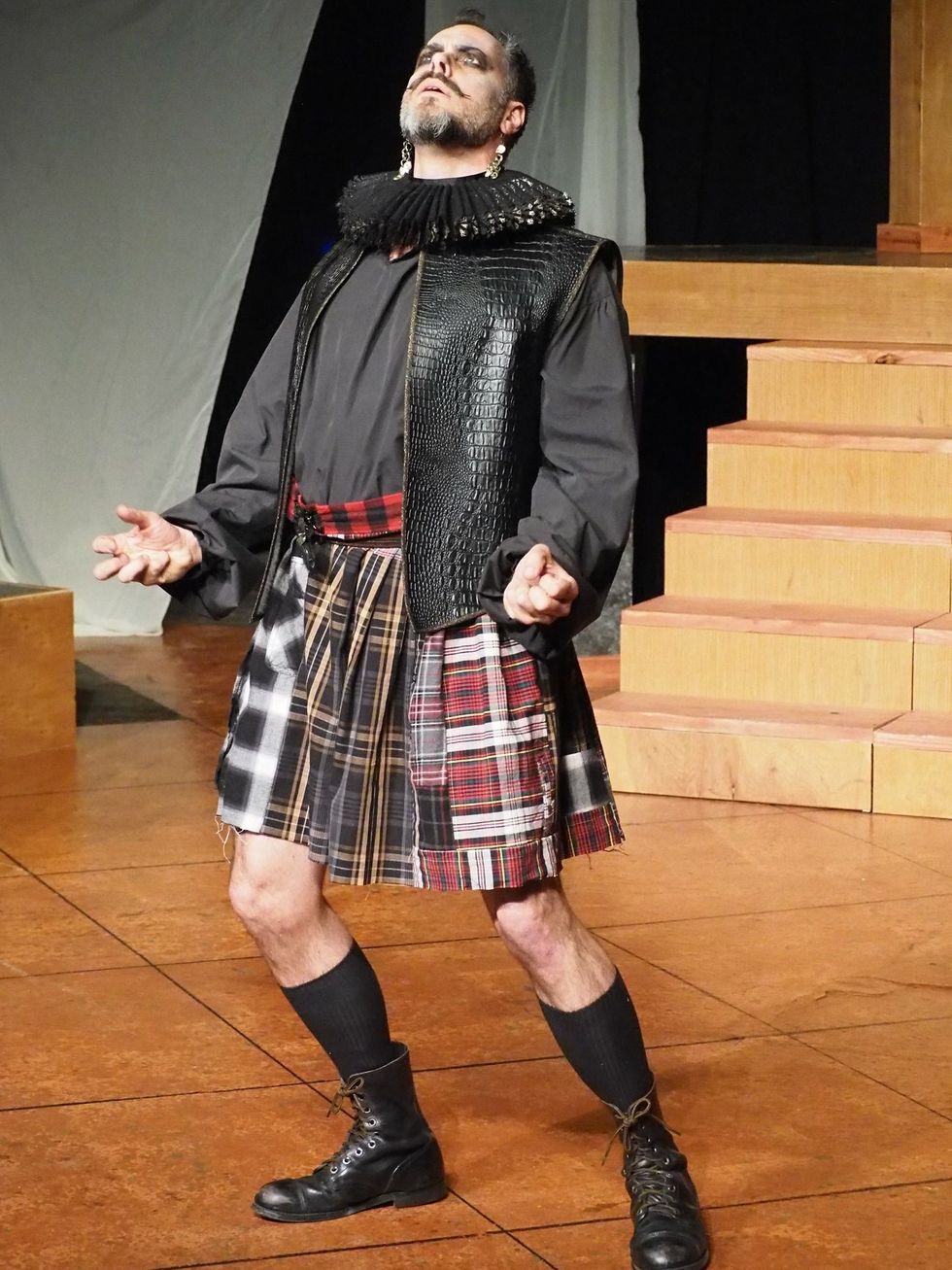Anyone who knows me has heard of “Rosencrantz and Guildenstern Are Dead” given how often I bring my favourite play into conversation. Some of my closest friends have been subjected to watching the 1990 film interpretation (starring Tim Roth, Gary Oldman, and Richard Dreyfus) multiple times.
(sorry, Katherine, my love…but thank you for humouring me and letting this become our movie)
Finally, I have the absolute privilege of being in this season’s St. Louis Shakespeare production of “R&G.”
This process has been a blast and I can’t believe it’s already coming to an end!
To try and make the most of this experience, I thought I’d write about the show process, not just from my point of view, but also from my cast mates’ perspective.
St. Louis Shakespeare Company opened it’s final show of it’s 31st season this past weekend. Though, not written by the Bard himself, “Rosencrantz and Guildenstern are Dead” is a retelling of what is easily Shakespeare’s most beloved play “Hamlet: Prince of Denmark.” Two minor characters, friends of the Great Dane from their youth, have been summoned by the King and Queen to determine why Hamlet is so depressed (ya know, besides his father being murdered, and his mother rushing to remarry her husband’s younger brother…because that’s clearly not reason enough to unleash a bunch of teen angst).
At least, this is the guise the majesties of Denmark project onto the pair of witless wonders. In reality, they have essentially hired Rosencrantz and Guildenstern to spy on the prince and convince him to stop wearing so much black and move on from his father’s death because everyone wants to be happy dammit!
This Tom Stoppard masterpiece of absurdity is, in an analytic word, difficult. Should one get cast as Rosencrantz or Guildenstern (neither of whom have more than five lines in the original script of “Hamlet”) their responsibilities exceed that of any other characters on stage. There isn’t one page where R&G don’t have a plethora of lines—many of which are repetitive and extremely existential.
This isn’t to suggest that the rest of the ensemble isn’t important, we just have the pleasure of observing the struggles of our “tragic heroes” while we quite literally clown around behind them. Like I said, it’s been a blast.
St. Louis Shakespeare has assembled an impressive cast of local talent, includingTed Drury as Guildenstern and Bob Thibaut as Rosencrantz. The pair of them rise to the challenge of these wordy characters beautifully. There is a delightful chemistry between the pair that has been present since the start of the rehearsal process.
Thibaut added, “The play is following these two characters who are constantly trying to figure out where they are going. And while they’re waiting to be told what to do and where to go, they’re having these conversations about death. They’re trying desperately to keep climbing through the dark only to reach their destination and realise that their destination was always going to be death. They’re fighting against the play’s tendency toward tragedy with comedy, and they’re fighting a battle they can never win. No existential conversations or games can save them from their end. It’s like Rosencrantz says in Act 3, ‘We’re drifting through time, grasping at straws—what good is a brick to a drowning man?’ To me, that line just really sums up the whole play. They’re desperately trying to find their way back to normalcy, but nothing can prevent what’s coming to them.
Regarding the rehearsal process itself, Thibaut had this to say: “The trickiest part is getting the timing right. The humour is so important, but it can’t overshadow the message we’re trying to tell. Whether it’s comedy or tragedy, timing is everything. Finding the musicality in the script is crucial. If it’s not present on the stage, the audience isn’t going to relate to it—the message is lost.”
In short, it’s not only learning the lines, it’s more about the nuance that goes with it.
The rest of the ensemble is composed of the prominent characters from the original story of Hamlet: Claudius (Nick Kelly), Gertrude (Wendy Greenwood), Polonius (Dan McGee), Ophelia (Eileen Engel), and of course Hamlet himself (Scott McDonald)—and with a group of traveling performers/tragedians with a more than subtle inclination toward over-dramatised violence and sexuality.
The characters of the court have the challenge of skipping through major points of the original plots while still maintaining the motivation and intensity of where they would be if running “Hamlet” in it’s entirety.
As one of the players, my job was all about the nuance. We didn’t have much in the way of lines, so it was our responsibility to build a steady foundation on which Rosencrantz and Guildenstern can stumble. And man oh man has it be a delightful task. My fellow tragedians: Joe Garner, Cliff Turner, Michael Pierce, and Genevieve Collins have made this experience an extraordinarily rewarding couple of months.
Our fearless dramatic leader, The Player, exquisitely portrayed by Isaiah Di Lorenzo, brings the comic element to a new level.
Director Suki Peters has been an absolute joy to work with on this show. I was anxious to hear her take on the play itself and on how our interpretation has turned out:
What made you choose this show?
I am a huge fan of Stoppard and have wanted to direct this specific piece for over 20 years. Even though it was written in the 60's, the topics pondered are timely in any decade. I deeply enjoy the conversations that are sparked because of this play and am continually surprised that it is rarely performed.
What has been your favorite part of this specific rehearsal process?
The philosophical conversations with the actors as we peel back layer after layer of the text - like an onion.
Which character do you identify with most?
It varies from week to week. Currently, I'm in the Rosencrantz camp, but I've identified strongly with both Guildenstern and The Player on other days.
In your opinion, why should audiences make the effort to come and see this play?
It's a seldom produced modern classic that examines (in a comical way) the darker themes of what is arguably the best known play in the world. Also, there are ukuleles!
If you could see “Hamlet” through the perspective of a minor character besides R&G, who would it be?
Yorick
Honestly, I would love to hear the story told by a talking skull! And I believe if anyone could make that play work, it would be someone like Suki.
I hope you’ll take the time to come out and see our show! Personally, from my totally unbiased opinion… I think you’ll get a LOT out of it.
We have four more performances coming up this weekend:
Reserve your tickets NOW:
Call: 314-361-566
Thursday: 10 am and again at 7:30pm
Friday: 10 am and again at 8pm
Saturday: 8 pm
Sunday: 2pm
At the Ivory Theatre in St. Louis!
7620 Michigan Ave, St. Louis, MO 63111


